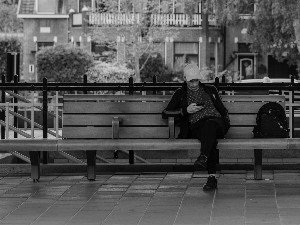Sri Nurcahyati, Mohamad Sadli, Abubakar Yakubu Abbani, Maretalinia
The Factors Associated with Lack of Access to Health Facilities among Persons of Concern (PoC) during the COVID-19 Pandemic in Nigeria
Introduction
The factors associated with lack of access to health facilities among persons of concern (poc) during the covid-19 pandemic in nigeria. Analyze factors limiting health access for Persons of Concern (PoC) in Nigeria during COVID-19. State, population, marital status, and gender of household heads are key. Crucial for improving PoC healthcare.
Abstract
Persons of Concern (PoC) are people displaced because of natural disasters or conflictsand violence, and they include refugees, asylum seekers, internally displaced persons(IDPs), and returnees. Nigeria is one of the major destinations of PoC in Africa. PoCshould have the same rights in any sector, including health access in their destination.However, during the COVID-19 pandemic, about 19% of households faced a lack ofaccess to health facilities in Nigeria. This study examined the factors related to the lackof access to health facilities among PoCs in Nigeria during the COVID-19 pandemicin 2020. Methods: Secondary data from the UNHCR survey, which was conducted inJuly 2020 among 3,222 households categorized as PoC, was used. Univariate, bivariate, and multivariate analyses were used to assess the factors with the aid of STATA 17software. Results: Factors such as state of residence, population status, marital status,and gender of household heads were found to have a significant correlation with thelack of access to health facilities in Nigeria. Conclusion: The UNHCR, the Nigeriangovernment, and other stakeholders must work together to ensure all PoCs can accesshealth facilities easily, especially during outbreaks of pandemics and other disasters.
Review
This study addresses a critically important and timely issue: the barriers to health facility access faced by Persons of Concern (PoC) in Nigeria during the unprecedented challenges of the COVID-19 pandemic. Given Nigeria's significant role as a host country for displaced populations, and the established vulnerability of PoC to health inequities, the research is highly relevant. By examining factors associated with limited health access using secondary data from a large UNHCR survey of over 3,000 PoC households, the study aims to shed light on specific determinants that exacerbated these challenges in 2020. This focus is crucial for informing targeted humanitarian and public health interventions. The research effectively identifies several key demographic and contextual factors significantly correlated with a lack of access to health facilities. Specifically, the findings highlight the importance of state of residence, population status (e.g., refugee vs. IDP), marital status, and the gender of household heads. The application of univariate, bivariate, and multivariate analyses using a substantial dataset lends credibility to these results, suggesting robust statistical rigor in identifying these correlations. These distinctions are vital, as they move beyond a general understanding of PoC vulnerability to pinpoint specific segments of the population that experienced disproportionate barriers, thereby offering actionable insights for policymakers and aid organizations. While the abstract provides a compelling snapshot of the study's findings, a deeper exploration in the full paper could further enhance its impact. Future discussion could elaborate on the underlying mechanisms through which factors like 'state of residence' or 'population status' translate into access barriers – e.g., specific policies, security concerns, or resource distribution. The study's conclusion, urging collaboration among UNHCR, the Nigerian government, and other stakeholders, is well-founded and directly supported by the identified disparities. This research serves as a valuable foundation for developing more equitable and resilient health systems that specifically address the unique needs of PoC, particularly during global health crises and other emergencies.
Full Text
You need to be logged in to view the full text and Download file of this article - The Factors Associated with Lack of Access to Health Facilities among Persons of Concern (PoC) during the COVID-19 Pandemic in Nigeria from Unnes Journal of Public Health .
Login to View Full Text And DownloadComments
You need to be logged in to post a comment.
Top Blogs by Rating
'Um' Isn't Just a Stumble: Wha...
By Sciaria
Goodbye Chargers: The Rise of...
By Sciaria
The Immortal Jellyfish: Unlock...
By Sciaria
Favorite Blog
Unleash Your Inner Recess: The...
By Sciaria
Whispers from the Walls: Unloc...
By Sciaria
Beyond Impatience: A Philosoph...
By Sciaria





